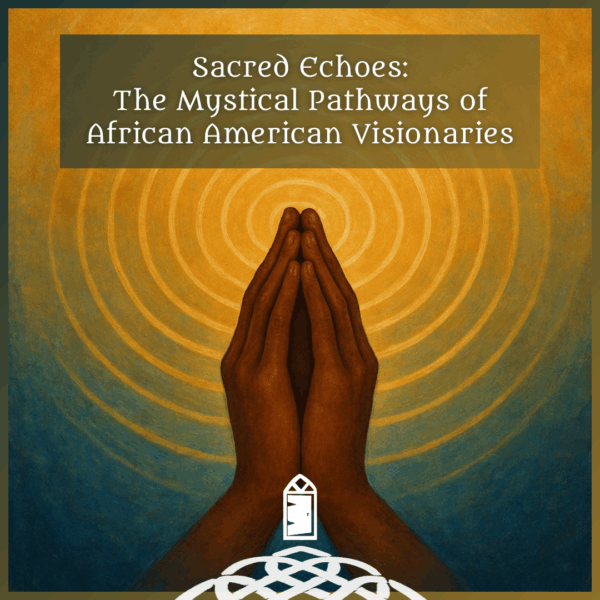***Make sure you go visit this week’s Poetry Party***
Your poems this week about hidden rooms are as evocative and amazing as ever. Click the link above and continue to submit them and I’ll keep adding them!
Early this past summer I had another dream about a hidden room:
My husband and I move into a new apartment which is much smaller than the one we live in now. We are having dinner guests over and I’m not sure where they will sit. I open a door I hadn’t tried before and behind it I find this large room decorated with antique furniture and a beautiful mahogany dining table and chairs all set for 8 and ready for company. The guests arrive and we drink red wine and eat fresh bread. People take turns reading quotes from the mystics.
This dream expresses my growing awareness of the sacredness of food. I’ve written about this before, but it becomes more and more important to me as I have slowly come to see how our industrialized food system and disconnection from our food is at root a spiritual crisis, perhaps one of the most critical ones we face as it is connected both to our bodily health and the health of the planet. The quest over the last several decades for cheap food has been destructive on so many levels. I find movements such as the 100 Mile Diet and the Slow Food Movement some of the most profoundly spiritual work being done right now — connecting our daily practices to justice issues, the earth, the thriving of our bodies and communities.
My dream represents a truth to me — that my experience of sharing a meal with friends — a meal that has been lovingly and ethically (which for me means organic, free-range, and as local as possible) made, is an experience of communion that is far more profound than anything I have experienced in a church building. Together we honor the gifts of the earth for our physical nourishment and the gifts of each other to nourish our souls. It doesn’t matter to me what religion the people gathered come from, there is something transformative that happens in those moments over conversation and bread.
I saw a wonderful movie this summer titled The Waitress. It is about the transformative power of food, much in the spirit of Babette’s Feast, Chocolat, and other wonderful food-centered films that remind us of the sacred power of sensual delights. In the movie, Jenna makes pies that are connected to stories. The Waitress is being released on DVD November 27 (so put in your Netflix cue or on your rental list) and let me know what you think.
The theologian David Ford writes some very meaningful words about the aesthetics of feasting which I quote at some length here:
All the senses are engaged in a good feast. We taste, touch, smell, see, hear. Salvation as health is here vividly physical. Anything that heals and enhances savoring the world through our senses may feed into a salvation that culminates in feasting. From prayer for healing, and all the skills of medicine, through the accumulated wisdom of traditions of cookery, wine-making and brewing, to the experiences and havbits which refine our sensual discriminations and enjoyments, the requirements for full feasting draw us deeper into appreciation of our embodiment.
The arts are elaborate refinements of embodied perception. They are woven into feasts and festivals in many ways. . . The intensity of feasting rejoices in the celebratory potential of the arts and their overflow of expression which configures and refigures reality. The relaxation of feasting gives time and space for leisure is the basis of culture “Are there also possibilities of transformed sensing which see with ‘the eyes of the heart’, hear with the ‘inner ear’, smell ‘the odour of holiness’, savour ‘the sweetness of the Lord’ or ‘feel the touch of the Spirit? Are these ‘only’ metaphors? Or is there something in the rich tradition about ‘the spiritual senses’ within and beyond Christianity?
. . . Jesus went to meals, weddings and parties and had a feast-centered ethic. The images are vivid: water turned into wine; guests jockeying for places at table and being told to aim for the lower places; the invitation of a life-time refused because of being too busy with work or family; Jesus challenging concepts of God’s acceptance by eating with the outcast and marginalized; Dives feasting while Lazarus starves at his gate; children eating messily to the delight of the dogs; a woman sinner shocking the company by anointing Jesus and being forgiven by him; the reversal of expectations as the poor, handicapped and outsiders of all sorts are welcomed at the feast of t the Kingdom of God while those who through themselves sure of a place are left out; advice about not inviting into your banquet those who will invite you back; a master sitting a servant down and serving him; the Prodigal Son welcomed back unconditionally with the best robe, a ring, shoes, a fatted calf and a celebration, Jesus’ last supper, which was probably also a celebration of Passover; Jesus washing his disciples’ feet and the mysterious meals of the risen Jesus.
. . .As millions starve ought anyone to be feasting? Ought there not to be a long detour of working to feed everyone, postponing the feasting till that has been achieved? Or should we keep alive the hope of food by working for justice and, if we have food, simultaneously celebrating the goodness of God? Can we even sustain the work of compassion and justice in the right spirit if we are not also having some celebratory foretaste of the Kingdom of God? Or, looking at the story of the early church in the Acts of the Apostles, in the light of the explosion of joy and gratitude that followed the resurrection and Pentecost is it not the most obvious thing in the world both to share with those in need and also to celebrate with them?
The combination of sharing and celebrating is, perhaps, the most radical of all the implications of the teaching and practice of Jesus. Feeding the hungry is not a matter of the well-fed offering handouts and getting on with their private feasting: the vision is of everyone around the same table, face to face. . . . The feast of the Kingdom of God is described (and acted out) as generously inclusive beyond anyone’s wildest dreams. That is the main point: the free, surprising love of God who can be utterly trusted to judge truthfully and then decide far more compassionately than any of the rest of us. There is also a sharp note of exclusion, but it is one that follows from the inclusiveness. The excluded are those who cannot bear God’s generosity and will not imitate it.
While this is written from a Christian perspective, I think his point about the surprising generosity and graciousness of God extends far beyond insititutional boundaries. This is the God who reveals the hidden rooms of our souls and invites us on a lifelong journey of discovery.
May our tables be places of justice and healing. May our souls make room for possibility.
-Christine Valters Paintner @ Abbey of the Arts




4 Responses
Thanks Kathy, my spiritual director also noticed the number 8 and pointed out that 8 on its side is the symbol for infinity or the eternal .
What a wonderful post, especially in anticipation of Thanksgiving…I loved your dream… a holy feast celebrated with wine and bread. I was also intrigued with the number eight in your dream–Jesus appeared on the eighth day after his resurrection to his disciples, and I believe the number is associated with rebirth and resurrection ( I also couldn’t help thinking of the upper room).
I loved your idea of our tables “being places of justice and healing” and “making room in our souls for possibility”…
Thanks Cathleen, the class sounds wonderful! I’d love to be in (or teach!) a class like that.
Such rich and provocative images you offer. This reminds me of a class I took at a summer event, “The Bread of Life.” We baked a different type of bread each day while Chris “taught”, more like conversation around the table, telling stories much like the ones included above. Food, bread is about justice, hospitality, stewardship, family, faith. It was one of the most engaging classes I’ve ever had. Thanks for reminding me of it and for the invitation you extend for us to consider our “table manners.” Blessings!